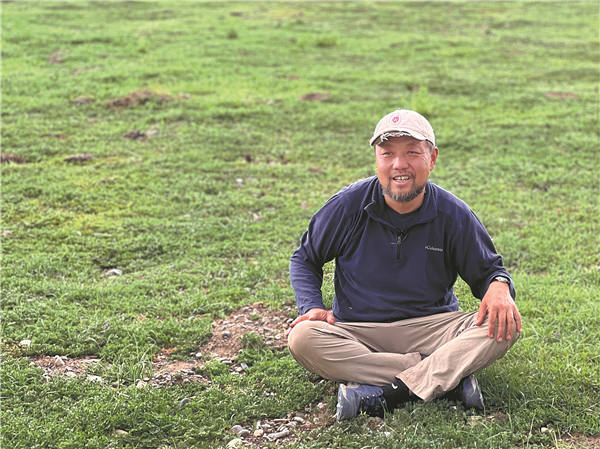

"Gentle" is the word Wang uses to describe the snow leopard. It is not a large-sized carnivore; in fact, they only grow as tall as around 61 centimeters at shoulder height and are not as tough as the smaller "Chinese desert cat", Felis bieti, (Chinese mountain cat), he adds.
According to Wang, the team once spotted a snow leopard in the mountains, with its exposed tail revealing its location from a distance. It was only after they zoomed in with their camera that they realized the snow leopard was also watching them, with its eyes looking in their direction through a gap in the rocks.
"I often feel that, rather than us observing the snow leopard, it is the snow leopard that is observing us, and it is much easier for it to do so," Wang says. "Often, by tracking its positioning data, I know it remains very close to me. Even though I can't see it with my eyes, I know that it sees me. I want it to observe me more, as it could be very meaningful for our research.
"There are still many mysteries to be explored with the reclusive snow leopard, and our research and understanding of the animal have only just begun," Wang says.
Wang claims that the research work has been helped by the growing awareness of the need for animal conservation among members of the local government and nearby residents. Additionally, he has heard from other experts, who are also working on animal conservation, that they have reached the same conclusion: The number of snow leopards is showing a significant increase.
He says that local people are becoming more aware that the area they live in is in need of protection. The government has introduced strong legislation pertaining to animal protection, and many conservation groups have sprung up among the people themselves.
"The religious beliefs of the local people make them revere living creatures, and on the Tibetan plateau, a place where resources are relatively scarce, people and animals both know how to cherish the gift of nature wisely and, at the same time, respect the equal relationship between people and nature," says Wang.